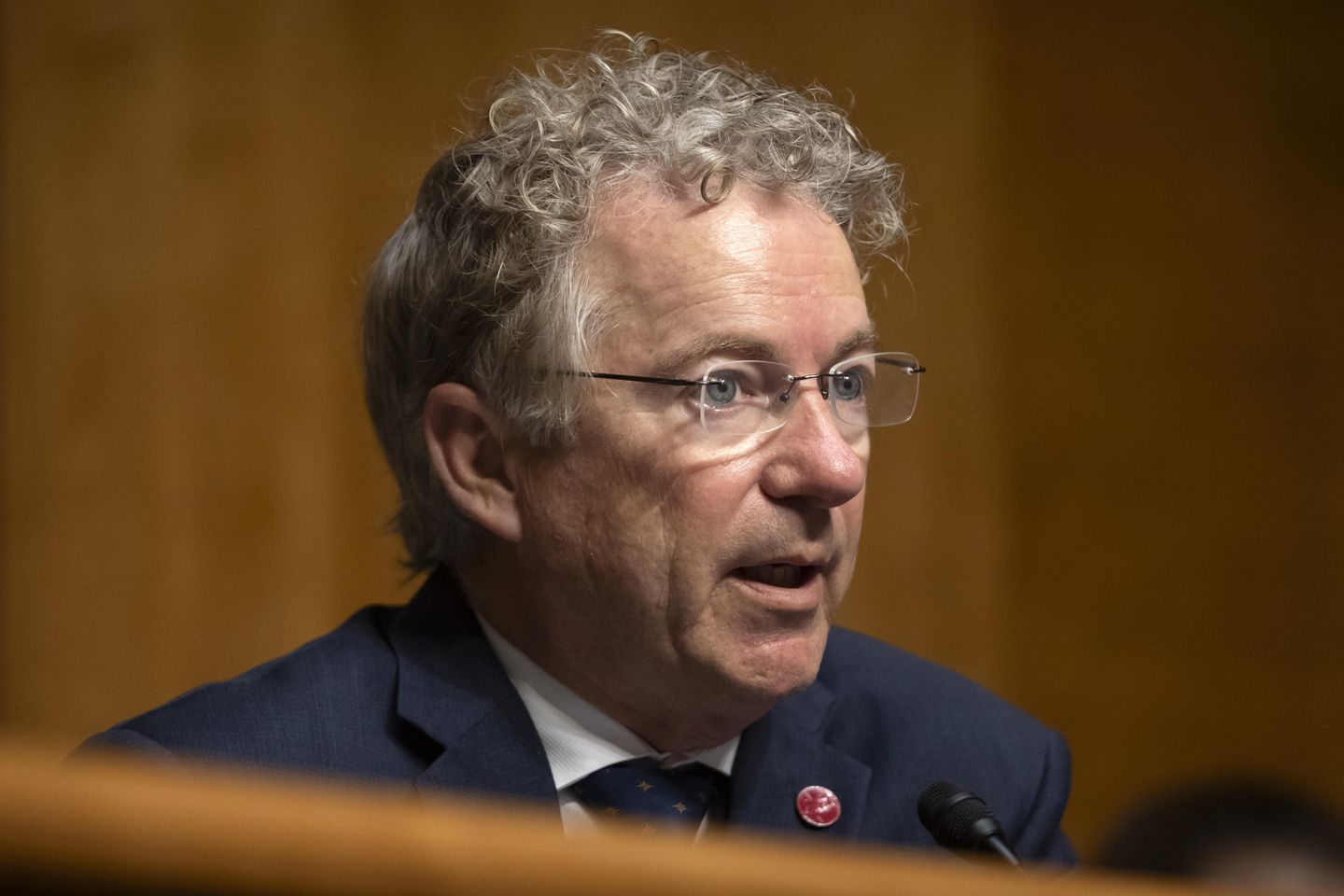
The Senate GOP on Wednesday narrowly defeated a bipartisan effort to nullify the national emergency that President Trump used to justify his across-the-board tariffs, helped in part by senators’ absences from the vote.
Senators deadlocked, 49-49, on the resolution, a largely symbolic effort to put Republicans on record in support or opposition to tariffs that are making waves in the global economy.
Sen. Sheldon Whitehouse, Rhode Island Democrat, did not vote because he was traveling back from a conference in South Korea, and Sen. Mitch McConnell, a Kentucky Republican who supported a previous effort to nullify Mr. Trump’s tariffs on Canada, did not show up for the vote.
Every voting Democrat and three Republicans voted to nullify the underpinning of Mr. Trump’s Liberation Day tariff plan, which imposed a 10% tariff on all imports and threatened heftier levies on dozens of trading partners, pending negotiations.
Congressional critics of the plan say the tariffs are a drag on economic growth, will raise prices for consumers and will bankrupt small businesses that rely on imported goods.
Sen. Rand Paul, a Kentucky Republican and an outspoken libertarian, teamed with Democrats to champion the resolution and a previous one that targeted Mr. Trump’s power to impose tariffs on Canada.
Sens. Susan M. Collins of Maine and Lisa Murkowski of Alaska also voted in support of the resolution.
Those two Republicans, plus Mr. McConnell, backed the Canada resolution in early April, helping it to pass.
Neither measure will become law, however, with Mr. Trump threatening a veto and House Republicans not planning to take them up.
Still, the resolution forced Senate Republicans to take a stand in favor or against Mr. Trump’s tariffs.
“Senate Republicans know deep down that Donald Trump’s tariff policies are awful for their states, so they have to choose today — stick with Trump or stand with your states,” said Senate Minority Leader Charles E. Schumer, New York Democrat, ahead of the vote.
Ms. Collins said the current tariff policy is “too broad and doesn’t distinguish between our allies and our adversaries.”
McConnell spokesman David Popp said, “The senator has been consistent in opposing tariffs and that a trade war is not in the best interest of American households and businesses.”
The Senate voted hours after the Commerce Department said gross domestic product shrank 0.3% in the first quarter, raising fears of a recession. GDP sank in part because companies imported lots of goods to get ahead of Mr. Trump’s tariffs.
Resolutions terminating national emergencies are privileged in Congress, which means any member can force a vote, as is happening in the Senate. But House GOP leaders used a procedural gimmick to prevent similar action in the lower chamber through September.
Senate GOP leaders have been willing to give Mr. Trump time to negotiate trade deals that could end some of the tariffs and have urged their members to oppose the resolution.
However, even some Republicans who support Mr. Trump’s efforts feel Congress might need to step in at some point and reclaim its constitutional authority over tariffs.
Mr. Paul opposes tariffs because he views them as a tax on Americans.
Tariffs are a duty on foreign goods that are brought into the U.S. Foreign countries don’t pay the taxes. Rather, U.S. companies typically pay the tariffs to customs officials as they accept import orders.
Retailers say they will have to choose between rejecting shipments from China, given sky-high tariffs, or accepting them and passing along the costs to consumers.
Over a dozen blue states and nonprofit watchdogs have sued over Mr. Trump’s use of executive authority to impose sweeping tariffs, saying he sidestepped Congress and stretched the limits of the International Emergency Economic Powers Act of 1977 in slapping across-the-board tariffs on all nations.
Mr. Trump says tariffs will force companies to return to America or keep their operations in the U.S., employ American workers and create revenue to fund domestic programs.
The White House says near-term turmoil in the markets and retail sector will be worth the long-term payoff. Countries that received a 90-day reprieve from Mr. Trump’s reciprocal tariffs are now negotiating to reduce their trade barriers in exchange for permanent relief from the new duties.
“This is something, a reordering of global trade, that hasn’t happened since the end of World War II, and it’s long overdue,” U.S. Trade Representative Jamieson Greer said Wednesday at a Cabinet meeting. “They said no one would come to negotiate, we’re talking to dozens of countries.”















